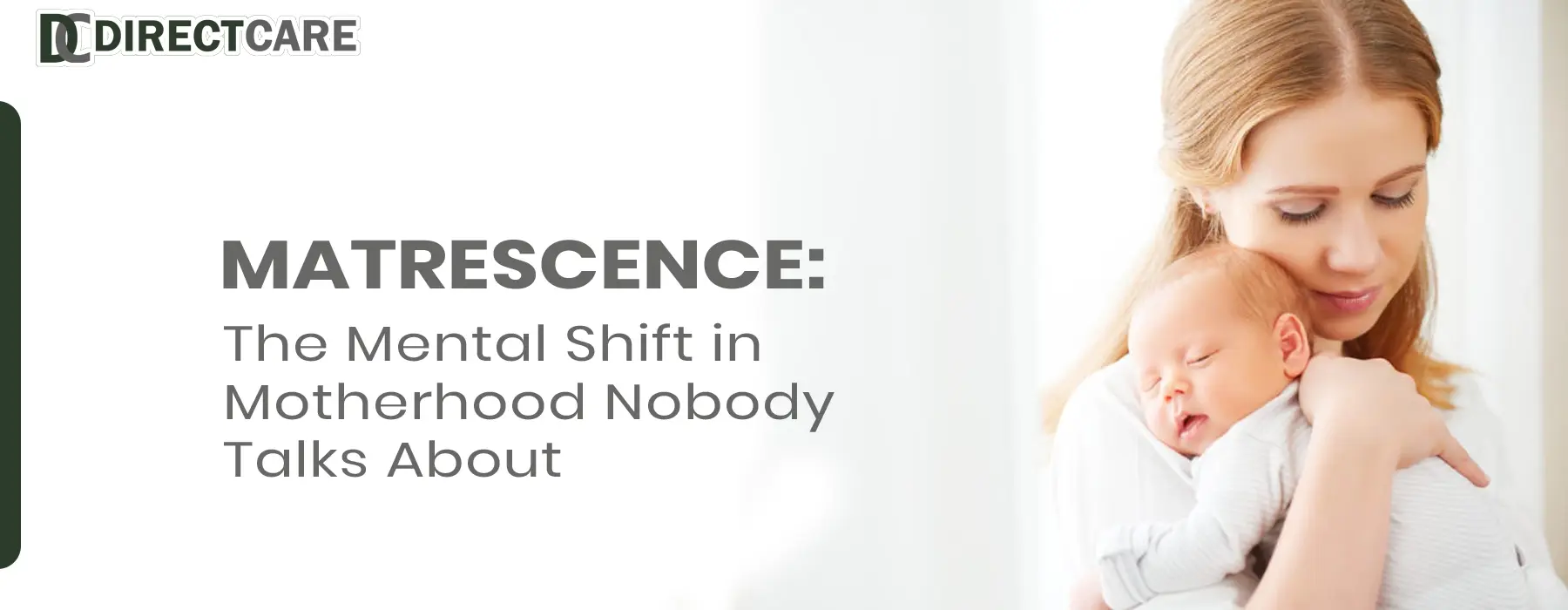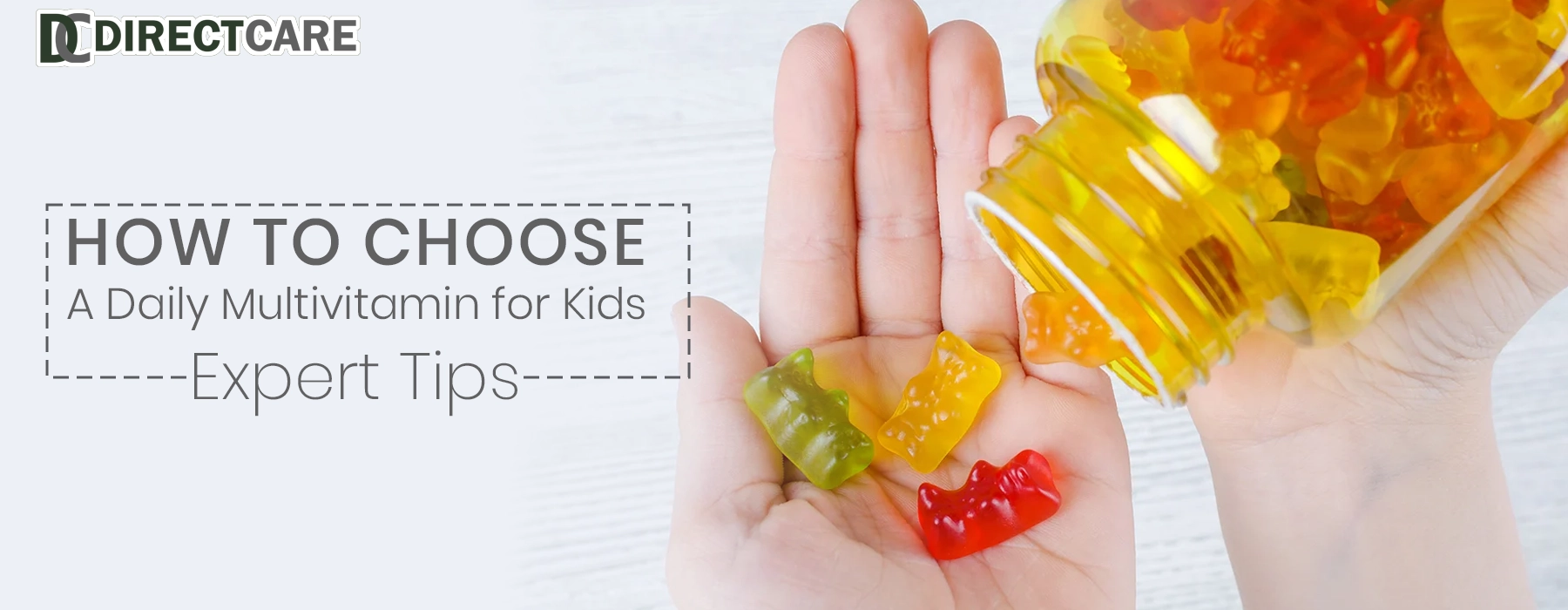Argan vs Coconut Oil: Which Is Better for Damaged Hair in the UK Climate?
11 Aug 2025Direct Care | 26 Jun 2025
Matrescence: The Mental Shift in Motherhood Nobody Talks About

After giving birth, many women face more than sleepless nights and physical recovery. What often goes unspoken is the emotional shift that accompanies the transition into motherhood. This experience, known as matrescence, involves complex mental, hormonal, and social changes that can reshape how a woman sees herself and the world around her.
Unlike clinical conditions such as postnatal depression, matrescence is not a disorder, but it can have a major impact on how mothers think, feel, and function each day. Recognising this transition is essential for emotional resilience and long-term wellbeing.
Direct Care believes that supporting mothers is just as important as supporting babies. In this blog, you’ll discover what matrescence is, how it affects mental health in new mums across the UK, and how practical tools and emotional support can make a meaningful difference.
Understanding the Transition into Motherhood
The term matrescence was introduced by medical anthropologist Dana Raphael to describe the emotional, physical, and psychological transformation that occurs when a woman becomes a mother. While widely discussed in academic circles, the concept is still unfamiliar to many families and healthcare providers.
Matrescence is not a medical diagnosis; it’s a natural, though sometimes overwhelming, adjustment period. It typically begins during pregnancy and can last well into a child’s early years.
This shift affects multiple areas of life:
- Hormones and brain function
- Identity and sense of self
- Roles in relationships and society
- Confidence and emotional stability
It is often compared to adolescence due to its intensity, unpredictability, and long-lasting effects. The lack of widespread understanding around matrescence means many women misinterpret their emotional changes as something being “wrong” with them, when in fact, they’re experiencing a normal part of motherhood.
The Emotional and Psychological Effects of Matrescence
For many new mothers, matrescence triggers unexpected emotional and psychological challenges. While it’s not a clinical condition, this transition can directly influence mental health in new mums across the UK, especially when proper support is missing.
Common mental health effects during this period include:
- Emotional sensitivity and mood swings
- Persistent self-doubt about parenting choices
- Feelings of identity loss or confusion
- Overwhelm and mental fatigue
- Isolation, even when surrounded by others
Although these feelings may not meet the criteria for postnatal depression or anxiety, they are still significant. Left unaddressed, they can escalate into more serious mental health concerns.
Campaigns like Maternal Mental Health Awareness Week and services such as NHS Talking Therapies and Mind UK are helping to shift the narrative. According to the NHS, 1 in 5 women in the UK experience mental health difficulties during or after pregnancy. Recognising matrescence as a valid and shared experience helps reduce stigma and promotes early intervention.
Navigating Motherhood Identity Change
One of the most profound aspects of matrescence is the motherhood identity change that many women go through. Before having a baby, a woman might identify as a professional, a partner, a friend, or a creative individual. After childbirth, these roles may feel distant, replaced entirely by the label of “mum”.
It’s common to feel:
- Guilty for missing aspects of life before motherhood
- Pressured to enjoy every moment, even during emotional exhaustion
- Disconnected from past interests or achievements
- Unsure how to relate to people who aren’t parents
These feelings are valid. Grieving your old identity while building a new one is a normal and important part of the journey.
Helpful ways to rebuild identity during matrescence:
- Reintroduce hobbies and personal time in small, manageable ways
- Connect with other mums who share similar experiences
- Speak openly with loved ones about how you’re feeling
- Set gentle goals that support both personal growth and parenting
Motherhood doesn’t erase who you were. With time and care, many women find they emerge from matrescence stronger, more self-aware, and deeply grounded in purpose.
Practical Support for Emotional Wellbeing in New Mums
While matrescence is not an illness, its impact on emotional well-being can be significant. Taking early action to protect your mental health helps reduce long-term stress and creates a more balanced parenting experience.
Here are practical ways to support your mental health:
- Talk to your GP or access NHS Talking Therapies
- Use journaling to track your mood and reflect on small wins
- Create calming routines like gentle walks, showers, or quiet reading
- Communicate openly with your partner or support network
- Don’t wait for a crisis — ask for help early and often
Additional UK resources include:
- PANDAS Foundation for postnatal mental health support
- Local peer support groups through midwives or health visitors
- Community centres that host parenting circles and support networks
If you’re supporting a new mum, small gestures, offering rest, listening without judgement, and sharing household tasks can go a long way in making her feel seen and supported.
When to Seek Additional Support During Matrescence
Matrescence can be emotional, but there are times when more serious support is needed. If you’re struggling with persistent sadness, numbness, or disconnection, it may signal something more than the natural adjustment to motherhood.
Watch for these signs:
- Ongoing low mood or frequent irritability
- Feeling detached from your baby or family
- Trouble bonding or engaging in daily care
- Loss of interest in activities you once enjoyed
- Hopelessness or emotional numbness
These symptoms could point to conditions like postnatal depression or anxiety. Seeking help is a sign of strength, not failure. Speak with a GP or health visitor, early intervention can make a real difference to your recovery and wellbeing.
Finding Strength in Sharing Your Story
Sharing your story is one of the most powerful ways to normalise matrescence and reduce stigma. Whether it’s through journaling, talking with a friend, or joining a support group, being open helps others understand that motherhood is a journey, not a fixed role.
Ways to reclaim your voice:
- Write or talk about how your identity is shifting
- Join local or online mum groups that discuss emotional health
- Follow supportive, realistic parenting content on social media
- Avoid comparing your journey to others; every path is unique
You deserve to be heard, seen, and supported. Your story can help others feel less alone and more empowered.
Every Mum Deserves to Be Seen
Matrescence is not just a passing phase — it’s a profound emotional and psychological journey. Much like adolescence, it reshapes how a woman sees herself, how she relates to others, and how she functions day to day.
For many new and expecting mums, the experience is challenging, rewarding, and often misunderstood. It’s important to recognise that you’re not alone, and this transformation is valid.
Here’s what to remember:
- Matrescence is real. It’s a natural part of becoming a mother.
- Support is essential. Both emotional care and practical tools, such as trusted baby care products, can ease the journey.
- Identity takes time. You may feel lost at first, but your new self will emerge — strong, capable, and grounded in purpose.
- You matter. Your well-being is just as important as your baby’s.
Motherhood isn’t about perfection. It’s about finding strength in transition — and knowing you deserve to be seen.
Shop Babycare Products
At Direct Care, we support every stage of your journey into motherhood with practical tools and trusted solutions. From gentle baby skincare to feeding accessories, nappies, and bathing essentials, our collection of baby care products is designed to simplify daily life and ease emotional stress. Rebuild your routine, reduce pressure, and feel more in control — all with dependable products delivered directly to your door.
Tags
Frequently Asked Questions
Error: No FAQ data found in ACF.





